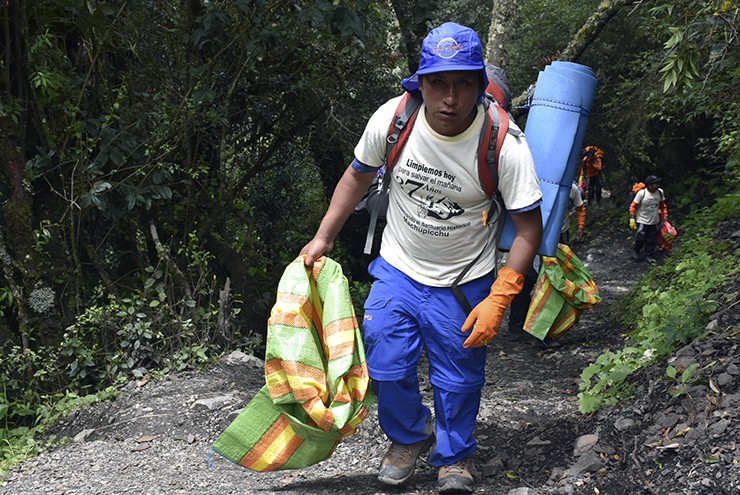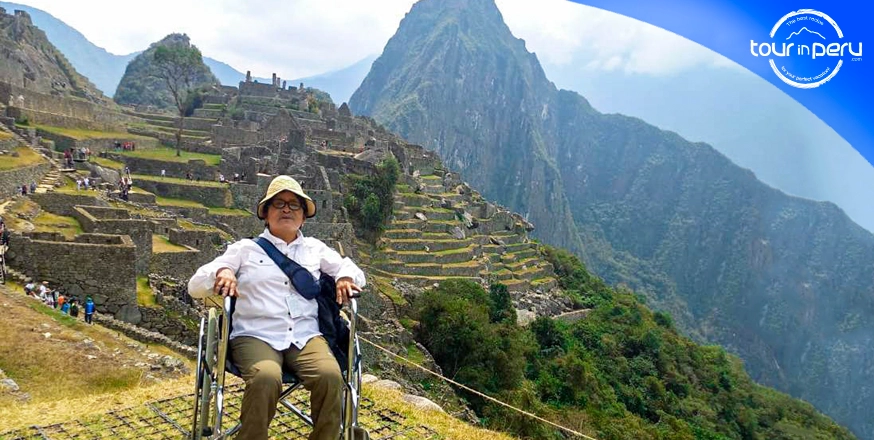Table of Contents
A Tourism with Purpose
Sustainable tourism has evolved from a niche trend into a global imperative. In a world facing climate challenges, social inequalities, and cultural heritage loss, tourism businesses hold both the opportunity and the responsibility to reshape their operations under a Corporate Social Responsibility (CSR) framework aligned with the 2030 Agenda and its 17 Sustainable Development Goals (SDGs).
Why act now? Climate & environmental risks threaten iconic destinations; Informed travelers demand transparency and authentic social commitment; Governments & international bodies provide incentives and certifications for responsible practices.
In this article, we’ll explore, the Key Concepts on CSR + SDGs, the Benefits & Synergies for businesses and communities, Implementation Strategies, practical steps you can take today, Overcoming Challenges, tips and best practices, Case Study, How TOUR IN PERU leads by example, Call to Action, next steps for companies and travelers.
1. What Is CSR and How Does It Connect to the SDGs?
1.1 Definition of CSR
Corporate Social Responsibility is a strategic approach whereby organizations voluntarily integrate ethical, social, and environmental principles into their core operations. It goes beyond isolated philanthropy, embedding sustainability into the business model itself.
1.2 The 17 SDGs: Your Global Compass
The United Nations’ 2030 Agenda defines 17 Goals and 169 targets aimed at eradicating poverty, protecting the planet, and ensuring peace and prosperity. For the tourism sector, the most relevant SDGs often include:
- SDG 8: Decent Work & Economic Growth
- SDG 12: Responsible Consumption & Production
- SDG 13: Climate Action
- SDG 14: Life Below Water (crucial for coastal destinations)
- SDG 15: Life on Land (conservation of terrestrial ecosystems)
- SDG 17: Partnerships for the Goals
1.3 The CSR–SDG Convergence
By integrating the SDGs into CSR strategies, tourism companies:
- Redefine their value proposition: from selling experiences to generating positive impact.
- Ensure transparency & accountability: by adopting standardized indicators to track SDG contributions.
- Build resilience: by anticipating social and environmental risks before they become crises.
2. Benefits of Aligning CSR and the SDGs in Tourism
2.1 Creating Shared Value
“Generating economic returns while addressing social and environmental needs.”
- Circular Economy Practices: reuse and recycle materials in lodges, campsites, and tours.
- Local Training Programs: equip community members as guides or artisans, boosting household incomes and community welfare.
2.2 Boosting Reputation & Trust
- Certifications & Seals: ISO 14001, TOURCERT, SABP Quality & Trekking endorse your commitment.
- Impact Stories: share real-life case studies in blogs and social media to build loyalty and attract new markets.
2.3 Access to Finance & Strategic Partnerships
- Green Funds & Sustainable Credit Lines: often offer lower interest rates and favorable terms.
- Collaborations with NGOs, local governments & international bodies expand your resource base and project reach.
2.4 Competitive Differentiation
In a crowded market, a genuine sustainability commitment can be the deciding factor for 60 % of conscious travelers searching for responsible operators.
3. Strategies to Integrate the SDGs into Your CSR Management
3.1 Diagnosis & SDG Prioritization
Impact Mapping:
- Step 1: Analyze your value chain—transport, accommodation, suppliers, host communities.
- Step 2: Identify environmental risks (erosion, water consumption) and social risks (labor exploitation, cultural loss).
Select Your Priority SDGs:
- Choose 3–5 Goals where you can have the strongest influence.
- Example: A trekking agency might focus on SDG 8 (local employment), SDG 13 (climate action) and SDG 15 (ecosystem protection).
3.2 Designing Initiatives & Programs
- SDG 8 (Decent Work):
- Local hiring policies & fair wages.
- Community-based tourism training programs.
- SDG 12 (Responsible Consumption):
- Eliminate single-use plastics on treks.
- Implement composting and waste-separation systems.
- SDG 13 (Climate Action):
- Measure your carbon footprint and offset via reforestation.
- Install solar panels in lodges and offices.
- SDG 15 (Life on Land):
- Partner with park rangers to protect trails.
- Fund local biodiversity studies.
3.3 Communication & Engagement
- Storytelling: produce videos and blog posts that showcase community benefits.
- Annual Impact Reports: publish SDG-aligned metrics—goals achieved, milestones, and challenges.
- Traveler Participation: offer a pre-trip “Responsible Travel Checklist” and in-destination guidance.
3.4 Monitoring & Continuous Improvement
-
SDG-Aligned KPIs: e.g.
- Number of direct jobs created (SDG 8),
- Tons of CO₂ offset (SDG 13),
- Cubic meters of water reused (SDG 6).
-
Stakeholder Feedback: conduct surveys with customers and community members to refine your programs.
4. Challenges & Keys to Overcome Them
| Challenge | Practical Solution |
|---|---|
| Complex impact measurement | Adopt digital reporting platforms (e.g. Global Reporting Initiative tools) |
| Internal cultural change | Organize workshops and immersive training sessions for all staff |
| Bureaucracy & red tape | Build alliances with chambers of commerce and sustainable tourism networks |
| Limited resources | Start with low-cost pilot projects and reinvest savings into CSR initiatives |
| Slow multisector coordination | Establish biannual working groups with authorities, NGOs, and community leaders |
5. Case Study: TOUR IN PERU as a Sustainable Tourism Leader
5.1 Certifications & Standards
- ISO 9001, 14001 & 45001 (2021–2023): Quality, environmental and safety management.
- TOURCERT (Germany): Sustainable Tourism & CSR certification.
- SABP Quality & SABP Trekking (Peru): Best practices in tourism quality and trekking operations.
5.2 Flagship Projects
Local Employment Programs (SDG 8):
- Training guides, drivers, cooks & support staff in rural communities.
- Result: 20% increase in direct employment (2019–2022).
Comprehensive Waste Management (SDG 12):
- “Zero Plastic” campaigns on the Inca Trail, Salkantay & other routes.
- Partnerships with community recycling cooperatives for composting and material recovery.
Reforestation & Carbon Offsetting (SDG 13–15):
- Investment in native-species nurseries via “You Buy, We Plant” initiative.
- Volunteer programs for travelers to participate in tree-planting events.
Cultural Heritage Protection (SDG 11):
- Agreements with indigenous communities to safeguard ancestral traditions.
- Cultural interpretation workshops for visitors to deepen understanding and respect.
5.3 Results & Key Learnings
- 20% increase in positive sustainability-related reviews.
- 18% reduction in energy consumption across offices and lodges.
- Publicly accessible CSR & SDG progress report on the TOUR IN PERU website.
6. Call to Action
For Tourism Businesses & Entrepreneurs:
- Immediate Diagnosis: Contact us to download our free Impact Mapping Template.
- Define Your Key SDGs: Set measurable targets for 2025.
- Join the Responsible Tourism Network: Participate in our upcoming events and webinars.
- Share Your Progress: Use #TurismoQueTrasciende, #ExperienciasQueTrascienden and tag @TourInPeru on social media.
For Responsible Travelers:
- Choose operators with real certifications and read their CSR reports.
- Learn about best practices before you travel: respect local customs, minimize your footprint, and support local economies.
- Share your experiences to inspire more people to travel consciously!
References
Montoya Arévalo, B. E., & Martínez Ramos, P. (Coords.). (2012). Responsabilidad Social Empresarial: Una Respuesta Ética ante Desafíos Globales. Fundación Konrad Adenauer.
United Nations – ECLAC. (2018). Agenda 2030 and the Sustainable Development Goals: An Opportunity for Latin America and the Caribbean. Santiago.
ISO. (2023). Standards ISO 9001, 14001 & 45001.
TOURCERT. (2023). Certification in Sustainable Tourism & Corporate Social Responsibility.
Global Reporting Initiative. (2021). Sustainability Reporting Standards.







